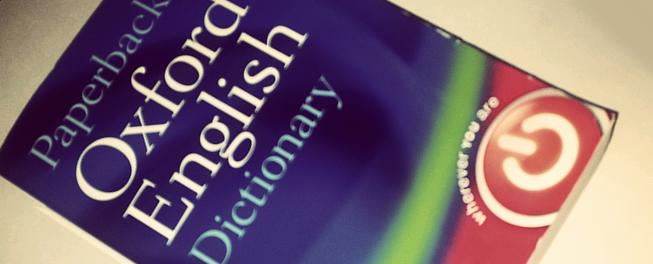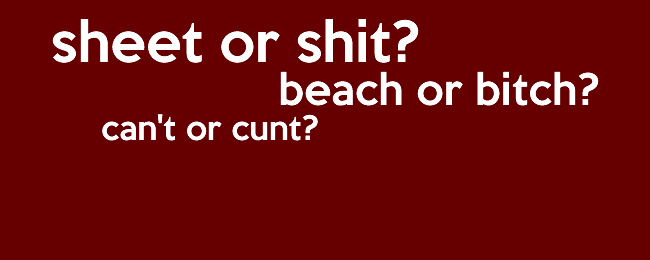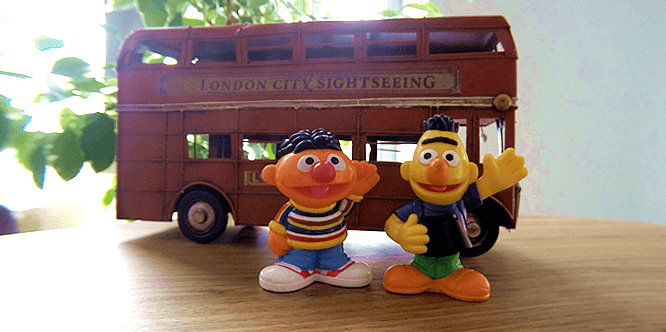
De esta manera, consciente de la dificultad que para los no angloparlantes supone contestar al teléfono o realizar una llamada en ingles, el profesor Ronan O’Donnell nos trae esta semana un artículo muy práctico, que no sólo servirá a aquellos que estéis mejorando vuestro nivel semanalmente con sus posts, sino también a todos aquellos que estéis buscando trabajo en UK o pendientes de algún curso y necesitéis desenvolveros correctamente al teléfono.
Con ejemplos de conversaciones y algún truquillo que otro para hacernos los locos cuando no entendamos lo que nos dicen (algo que ocurre con frecuencia) el artículo no tiene desperdicio.
Hello, is it me you’re looking for?
How do you answer the phone? Should you say ‘Hello’, ‘Hi’ or ‘Good morning/afternoon/evening?’
How should I end a call? By saying ‘Bye’, ‘Goodbye’, ‘Love you’ or ‘Thanks, Bye’.
The way in which you answer the phone depends on who you are talking to and the context of the call. The following expressions are commonly used when speaking on the phone.Calling
(Informally)
– ‘Hi. Can/Could I speak to Richard?’
– ‘Hi Mary, is John in?
– ‘Hi Mary, this is Lionel. Is Richard there?’
– ‘Hi Mary, it’s Lionel speaking.’
– ‘Can you tell him that I called? Could you ask him to call me back on this number?’
– ‘I will call back later.’(Formally)
– ‘Hello. This is Lionel / My name is Lionel.’
– ‘Hello. My name is Steve Jones. I’d like to speak/May I speak/Could I speak to Tom Smith please?’
– ‘Could you put me through to Tom Smith please?’ (when talking to someone at the front desk/reception)Answering
– ‘Hi. I’m sorry but she is not here at the moment.’
– ‘I’m afraid she’s not here at the moment.’
– ‘May I ask who’s calling?’
– ‘Can/Could/May I take a message?’
– ‘Would you like to leave a message?’
-‘Thanks for calling.’Confusion
Don’t be afraid to ask the person with whom you are speaking to slow down or to repeat what they have said. Native English speakers often find it difficult to understand other English regional accents and often need to have words or expressions repeated. There are over 250 different languages spoken in London so you are probably not speaking to a first language speaker in any case. Here are some phrases to help you if you are struggling to understand.
-‘I am sorry, I didn’t understand. Could you repeat that please?’
-‘Could you speak more slowly please?’
-‘Could you please spell that?’If all else fails and you don’t understand what is being said you can always blame the phone or the network. Try these.
-‘Sorry but this is a very bad line, you are breaking up. Can I call you back later?’ (After I have figured out what you were saying to me)
-‘Sorry, I think we got cut off.’
-‘The coverage/reception is bad. I will call you back later.’
Example Conversation
Ken: ‘Hello’.
Sue: ‘Hi. Is that Ken?’
Ken: ‘Yes, who am I speaking to?’
Sue: ‘This is Sue, is Mary in?’
Ken: ‘Oh hi Sue. I didn’t recognise your voice. Sorry, but she is not here at the moment. Can I take a message?’
Sue: ‘Could you tell her that I called and that I will call again later?’
Ken: ‘Sure, no problem. I will tell her you called. She should be back in a couple of hours.’
Sue: ‘Thanks Ken, Talk to you soon’
Ken: ‘Ok. Bye’
When answerin’ a call in da club and you’re kinda busy
Recording your voice mail message
– ‘Hi/Hello, this is Paul. I am sorry I can’t take your call right now. If you would like to leave me a message, I will call you back as soon as possible. Thank you.’
– ‘Hi/Hello, this is Paul I am afraid I am not available at the moment. Please leave a message and I will call you back.’
Calling to say I love you
Leaving a message
– ‘Hi Paul. This is John calling. It is 4 o’clock and I was just wondering if you wanted to meet up for a drink later this evening. You can call me back on 09873933. Talk to you later, bye.
It may feel strange but you should practice these dialogues with a friend. Don’t wait until you are put on the spot. Making mistakes with a friend is less embarrassing than struggling on the phone with a prospective employer. You can also practice these scenarios by recording yourself on your mobile or computer and listening, recording again and repeating until you are happy with your work.
Y bueno, si a pesar de los consejos de Ronan aun tenéis dudas a la hora de contestar al teléfono, siempre podéis soltaros la melena y contestar como el protagonista de esta escena de la peli Scary Movie. Aunque la persona que os llame no os entienda y la llamada sea fracaso, por lo menos pasaréis un buen rato 😉






10 comentarios
Muy bueno!
And totally true. I remember when picking the phone how I struggle thinking: Should I say “I am Luis” or “This is Luis” , what must I say now? , it is kind of upsetting many times to me yet, a matter of practise and little tips too, I guess.
This is a great website, thanks for sharing it!
Sure Luis, it´s good for people to practise in order to feel comfortable and, as Ronan says in his article, it´s a good idea to do it with a friend if you are expecting an important call 🙂
Thanks for commenting!
Me encanta esta sección del blog!! Y el tema de este último articuló es súper útil, yo llevo casi año y medio viviendo en UK y aun sigo sintiendo ese escalofrío por dentro cada vez que tengo que hacer una llamada en inglés.
Enhorabuena por el blog! Seguir así!
Gracias Estefanía!
A nosotros nos pasa igual… pasa el tiempo y, a pesar de que tu inglés es mucho mejor y te desenvuelves bien, aun te entra esa “cosilla” cuando suena el teléfono… suponemos que con el tiempo cambiará ( o no!) jejeje
Saludos!
Me encanta lo de culpar al teléfono o la linea cuando no entiendes lo que te están diciendo. Ojalá hubiese leído esto un par de días antes porque me pasó justo eso ayer con el francés. La chica al final me dijo. “No entiendes francés?” Y yo, con el ego herido le contesté “pues claro que entiendo francés”. Despues de eso le contesté a todo que si y aun no se de que me estaba hablando. Cada vez que suena el teléfono tiemblo. Espero que cuando me mude a UK (tengo intención de hacerlo dentro de un año cuando acabe mis estudios) no tenga el mismo problema. A pesar de llevar aquí un año sigo hablando mejor en inglés que en francés.
Hola Nuria,
Es que cuando a uno le tocan el orgullo del idioma…puede que no entiendas ni papa de lo que te están diciendo, pero siempre fingirás que sí o culparás al teléfono o, como en este vídeo que publicamos hace poco en Facebook y del cual te ponemos en link, al acento de la persona con la que estás hablando… la cosas es culpar a otros si no nos enteramos!! jejej
http://www.youtube.com/watch?v=RBxYgMMcpJs&sns=em
Un saludo y gracias por tu comentario!
Sí, el teléfono y los escalofríos cuando suena! jajajaj. Yo tengo una amiga de Polonia, que si no entiende y la llamada no es especialmente importante, cuelga.Así, sin más. jajaj.
Yo digo que no entiendo hasta que me lo repiten mil veces, aunque ahora ya lo llevo mejor. Lo que me cuesta son los acentos de diferentes paises hablando inglés.
Los acentos son siempre una de las dificultades mayores con las que nos encontramos todos los que hemos aprendido / estamos aprendiendo inglés. Sólo con los más de 200 acentos que hay en Londres ya es una pesadilla! jejeje.
Un saludo!
Muy bueno el articulo, a mi me resulta mucho mas facil entender a los extranjeros hablando ingles que a los propios ingleses, lo que peor llevo es que me llamen “Oulala”! acabo de descubrir vuestro blog, y creo que me sera muy util, saludos
Nos alegra oirlo “Oulala” 😉
Un saludo!